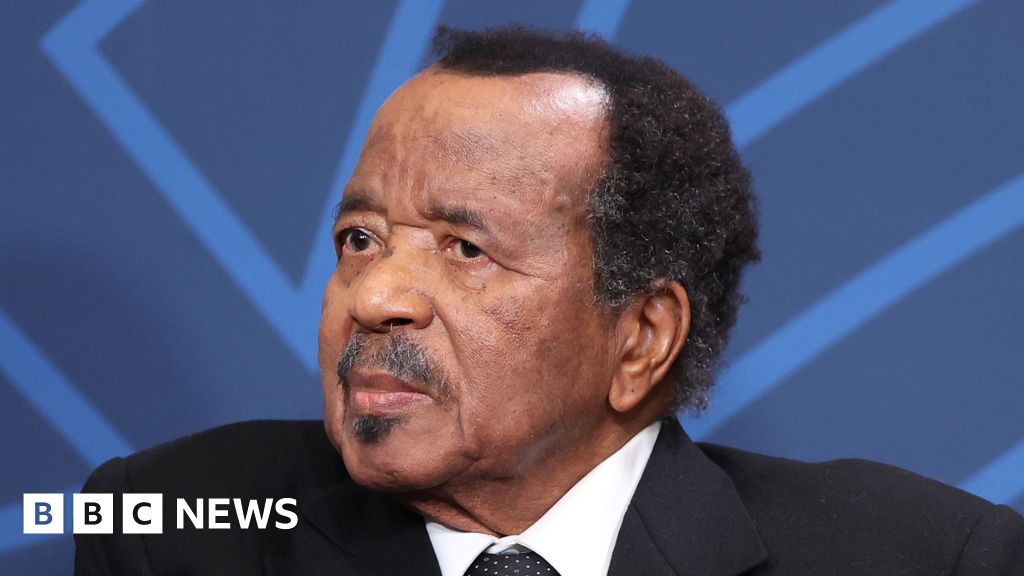
Joe Biden dropped out of US presidential race in July this year.
Joseph Robinette Biden Jr, the 46th and current President of the United States, has had a storied and resilient political career spanning over five decades. His journey from a young senator to reaching the pinnacle of power in the US (as President in the White House located on 1600 Pennsylvania Avenue in Washington, DC) has been marked by personal tragedy, political triumphs and a life-long commitment to public service.
Early Life and Background
Joe Biden was born on November 20, 1942, in Scranton, Pennsylvania into a working-class family. Mr Biden's early years were shaped by the economic challenges faced by his parents during and after World War II. His father, Joseph Biden Sr, struggled with financial difficulties, working as a car salesman after losing his earlier business. His mother, Catherine Eugenia Finnegan Biden, was a homemaker who played a significant role in shaping his strong moral values and sense of responsibility.
Mr Biden's family later moved to Claymont, Delaware, where he would spend the majority of his childhood and eventually attend Archmere Academy, a private Catholic school. He was an active student, participating in sports and developing leadership skills that would serve him in his political future. Mr Biden graduated from the University of Delaware in 1965 with a degree in history and political science, followed by a law degree from Syracuse University in 1968.
Family Life: Tragedy And Resilience
Joe Biden's personal life has been marred by deep loss and tragedy, which has significantly shaped his character and approach to public service. In 1966, Biden married Neilia Hunter, and the couple had three children: Beau, Hunter and Naomi. However, in 1972, just weeks after Mr Biden was elected as a senator from Delaware, Neilia and one-year-old Naomi were tragically killed in a car accident. His sons, Beau and Hunter, were severely injured but survived.
Mr Biden seriously considered stepping down from his newly won Senate seat to care for his sons but was persuaded to continue by colleagues. This moment solidified Biden's reputation as a family-oriented politician who always placed his loved ones first.
In 1977, Mr Biden married Jill Jacobs, an educator with a doctorate in education, who has stood by his side through the highs and lows of his career. Together, they have a daughter, Ashley Biden, who is a social worker and activist.
Tragedy struck Mr Biden again when his eldest son, Beau Biden, who had served as Delaware's attorney general and was considered a rising star in Democratic politics, died from brain cancer in 2015. Beau's death was a crushing blow for Mr Biden, and he often speaks of his son's legacy as a major influence in his decision to run for President.
Political Career: From Senator To Vice President
Mr Biden's political career began at the age of 30 when he became the sixth-youngest Senator in US history. Representing Delaware, he held his Senate seat for 36 years, focusing on issues such as foreign policy, criminal justice, and civil rights. Mr Biden was known for his bipartisan approach to governance, working across the aisle with Republicans on key legislation.
During his time in the Senate, Mr Biden chaired both the Senate Committee on Judiciary and the Senate Foreign Relations Committee. He played a pivotal role in shaping US foreign policy, particularly in the Balkans during the 1990s and in the lead-up to the Iraq War in 2003. His support for the 1994 Crime Bill, which increased penalties for certain crimes and expanded the prison system, has been both lauded and criticised in later years, especially as the conversation around criminal justice reform has evolved.
In 2008, Biden was selected as Barack Obama's running mate. As Vice President, Biden helped steer the country through the 2008 financial crisis and played a key role in passing the Affordable Care Act. He also led initiatives related to foreign policy, particularly with respect to Iraq and Ukraine, and domestic efforts on cancer research, mental health, and violence against women.
2020 Presidential Campaign And Victory
Joe Biden's path to the presidency was far from smooth. After two unsuccessful runs in 1988 and 2008, Mr Biden entered the 2020 Democratic primary initially as a moderate candidate in a crowded field. His experience, moderate positions and perceived electability against then-President Donald Trump helped him secure the Democratic nomination.
The 2020 election was one of the most contentious in US history, held amid a global pandemic, widespread economic uncertainty and social unrest following the murder of George Floyd. Mr Biden ran on a platform focused on unifying the country, combating the COVID-19 pandemic and addressing systemic racism. His choice of Senator Kamala Harris as his running mate also made history, as she became the first woman, the first Black woman, and the first South Asian American to serve as Vice President. She is now running for President.
On November 7, 2020, Mr Biden was declared the winner of the presidential election, securing 306 electoral votes to Trump's 232. Despite challenges to the results and the Capitol insurrection on January 6, 2021, he was inaugurated on January 20, 2021, as the 46th President of the United States.
Age And Experience: A Historic Presidency
At 78 years old, Joe Biden became the oldest president in US history at the time of his inauguration. His age became a topic of both concern and admiration with critics questioning his cognitive abilities, which ultimately led him to drop off the race and support Ms Harris.
The concerns around Mr Biden's age became more profound since his disastrous performance in a television debate against Donald Trump in June this year. Mr Biden's confused answers and body language led to calls that the 81-year-old was too old for the job. He ultimately dropped out of the race on July 21.
Policies And Achievements As President
Since taking office, Joe Biden's presidency has been defined by his handling of the COVID-19 pandemic, economic recovery, and his push for large-scale infrastructure investment. His administration passed the $1.9 trillion American Rescue Plan, which provided financial relief to millions of Americans affected by the pandemic, expanded unemployment benefits and accelerated vaccine distribution.
In November 2021, Mr Biden signed the $1.2 trillion Infrastructure Investment and Jobs Act, which aimed to modernise America's roads, bridges and public transit systems, and expand broadband internet access. The legislation was seen as a major bipartisan victory for Mr Biden, who had campaigned on his ability to work across party lines.
The Democrat leader has also focused on issues like climate change, proposing ambitious goals to reduce carbon emissions and promote clean energy. His administration rejoined the Paris Agreement and committed to making the US a leader in the global fight against climate change.

 1 month ago
11
1 month ago
11










 English (US) ·
English (US) ·